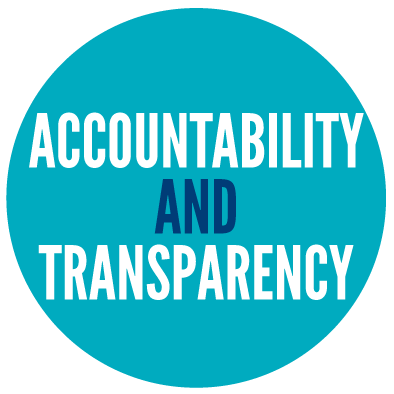The Role of Government Websites in Promoting Transparency and Accountability
July 12, 2023

In our rapidly evolving digital age, government websites have become much more than just static pages displaying information. They have evolved into powerful tools for promoting transparency, accountability, and citizen engagement. The role of government websites has expanded far beyond merely providing information; they now serve as a crucial means for fostering trust, accountability, and open governance. In this blog post, we’ll explore how government websites play a pivotal role in promoting transparency and accountability.
The Foundation of Democracy: Transparency and Accountability
Transparency and accountability are foundational principles of any healthy democracy. They ensure that citizens are informed about the actions and decisions of their government, and that those in power are held responsible for their actions. Government websites serve as the bridge between the government and the governed, enabling these principles to thrive.
Providing Access to Information
One of the primary ways government websites promote transparency is by making information easily accessible to the public. In the past, accessing government documents and data could be a cumbersome and time-consuming process. However, today, with a few clicks, citizens can access a vast array of information, from budgetary reports to legislative documents.
Government websites serve as comprehensive repositories of data, providing insight into government operations, spending, policies, and regulations. This accessibility empowers citizens to stay informed about government actions and decisions, enabling them to hold their representatives accountable.
Real-Time Updates and Open Data
The dynamic nature of government websites allows for real-time updates on a wide range of issues. Citizens can track the latest developments in government policies, laws, and regulations as they unfold. This real-time access fosters informed discourse and empowers citizens to engage in the decision-making process.
Open data initiatives, where government agencies publish data sets for public use, also contribute to transparency. Citizens, researchers, and businesses can use this data for a variety of purposes, from analyzing government spending to developing innovative solutions for societal challenges.
Accountability Through Feedback
Government websites often incorporate feedback mechanisms, such as contact forms, surveys, and comment sections. These tools allow citizens to voice their concerns, ask questions, and provide feedback on government initiatives. This open channel of communication enables government agencies to understand public sentiment and adjust their policies accordingly.
Digital Tools for Civic Engagement
In addition to providing information, government websites offer various digital tools to facilitate civic engagement. Online petitions, discussion forums, and interactive town hall meetings are just a few examples of how government websites promote active participation and accountability. These platforms enable citizens to express their opinions, collaborate with others, and directly engage with their elected representatives.
Accessibility and Inclusivity
To truly promote transparency and accountability, government websites must be designed with accessibility in mind. They should be user-friendly and adhere to accessibility standards to ensure that all citizens, regardless of abilities, can access the information and engage with the government. This commitment to inclusivity reinforces the democratic principle that all voices should be heard and considered.
Challenges and the Path Forward
While government websites have made significant strides in promoting transparency and accountability, challenges remain. One of the primary challenges is the digital divide, where not all citizens have equal access to the internet and digital devices. Governments must work to bridge this gap to ensure that all citizens can participate in the digital democratic process.
Additionally, cybersecurity and data privacy are critical concerns. Government websites must prioritize security and data protection to maintain the trust of citizens and safeguard sensitive information.
In conclusion, government websites play a pivotal role in promoting transparency and accountability in modern democracies. They provide access to information, encourage citizen engagement, and ensure that those in power are answerable to the people. As technology continues to advance, government websites will continue to evolve, further enhancing their role in fostering open governance and empowering citizens to hold their governments accountable. The digital age has opened up new opportunities for democratic participation, and government websites are at the forefront of this transformation.
 BACK
BACK